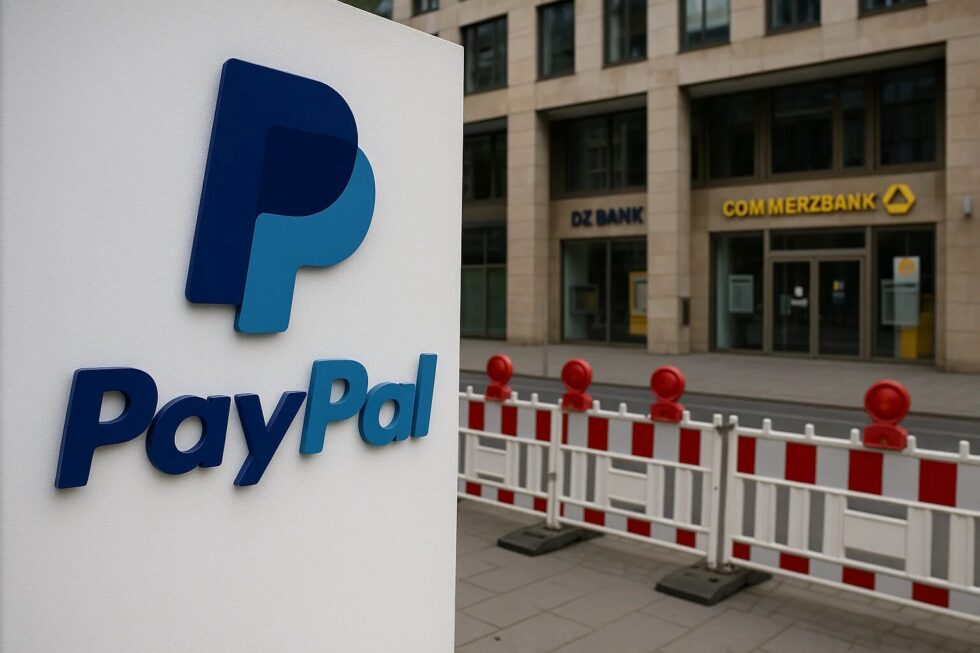PayPal: German banks temporarily blocked billions in payments after system failure

A serious disruption at PayPal has shaken confidence in one of the world’s largest online payment providers. The company experienced a technical outage that caused its security systems, normally responsible for detecting and filtering fraudulent transactions, to fail. As a direct result, several major German banks decided to block all PayPal direct debits, affecting transactions worth an estimated ten billion euros or more. The incident has sparked concern among merchants, customers, and financial institutions alike, since millions of users in Germany rely on PayPal for daily purchases and recurring payments. For some clients, the disruption translated into rejected orders, delayed deliveries, and alarming “negative balance” warnings in their accounts. The scale of the failure is unprecedented in the German market, especially considering that PayPal serves over 30 million active users in the country. Industry observers say the episode underlines how fragile digital payment infrastructures can be when protective systems collapse, reports G.business citing Süddeutsche Zeitung.
Millions of suspicious transactions
According to Süddeutsche Zeitung, German financial institutions recorded “millions of direct debits” from PayPal during the past week. Many of these transactions carried suspicious or fraudulent characteristics. With more than 30 million PayPal customers in Germany, the scale of the disruption was significant. Normally, PayPal debits funds directly from linked bank accounts or credit cards, but this time the processing chain was disrupted on an unprecedented scale.
This is not the first time PayPal has faced fraud-related problems. In December 2023, the Consumer Advice Center of North Rhine-Westphalia warned that criminals were using stolen bank details to go on shopping sprees through PayPal. According to Süddeutsche Zeitung, at the end of last week PayPal’s security systems “completely or largely failed,” allowing unverified transactions to be forwarded directly to banks. This opened the door to a large number of potentially fraudulent debits.
How German banks reacted
The banks’ own security systems served as the last line of defense. Once they detected inconsistencies, they opted for drastic measures.
Among the institutions that blocked payments were:
- Bayerische Landesbank
- Hessische Landesbank
- DZ Bank, which processes payments for Germany’s cooperative banks
This meant that merchants did not receive their funds on time, and some customer deliveries may have been delayed. While the reaction was aimed at protecting client accounts, it also caused a temporary freeze in parts of the payment ecosystem.
Payment backlog and PayPal’s explanation
The incident created a significant backlog of pending transactions, many of which must now be processed manually. According to experts, this could take several days to resolve.
In a statement to heise online, a PayPal spokesperson downplayed the issue:
“It was a technical problem, not a security problem,” said the company representative.
However, for many customers the outage effectively meant that PayPal’s fraud-prevention mechanisms were offline, leaving open questions about the platform’s reliability.
Official statement from PayPal
In a response to Süddeutsche Zeitung, PayPal stated:
“PayPal experienced a temporary service disruption that affected certain transactions of our banking partners and possibly their customers. We quickly identified the cause and are working closely with our banking partners to ensure that all accounts have been updated.”
The company stressed that corrective measures were underway but did not specify when full functionality would be restored.
Despite assurances, users continued to report issues. On Tuesday evening, a transaction via Sparkasse Gütersloh failed to go through. Online reports also indicated that disruptions were still occurring, though to a lesser extent than during the peak of the outage.
Negative balance warnings in accounts
Another consequence was confusing notifications in PayPal accounts. When banks blocked direct debits, PayPal displayed warnings of “insufficient funds” in customer accounts. The system then attempted to re-collect the amounts within four working days, adding a bank processing fee.
Some users even received red alert messages stating:
“Attention: Your PayPal Wallet balance is negative.”
It remains unclear whether PayPal will enforce these charges, given that the failures originated in its own systems.
The case highlights how even the world’s largest payment platforms remain vulnerable to technical breakdowns. While banks acted decisively to protect customers, the freeze left merchants without their money and buyers uncertain about their orders. PayPal insists the issue has been resolved, but rebuilding trust may take longer. The most pressing question now is whether customers will be forced to pay additional fees caused by an outage that was clearly PayPal’s responsibility.
Stay connected for news that works — timely, factual, and free from opinion — and insights that matter now: Why does Frankfurt remain Europe’s financial hub and what will change by 2030
